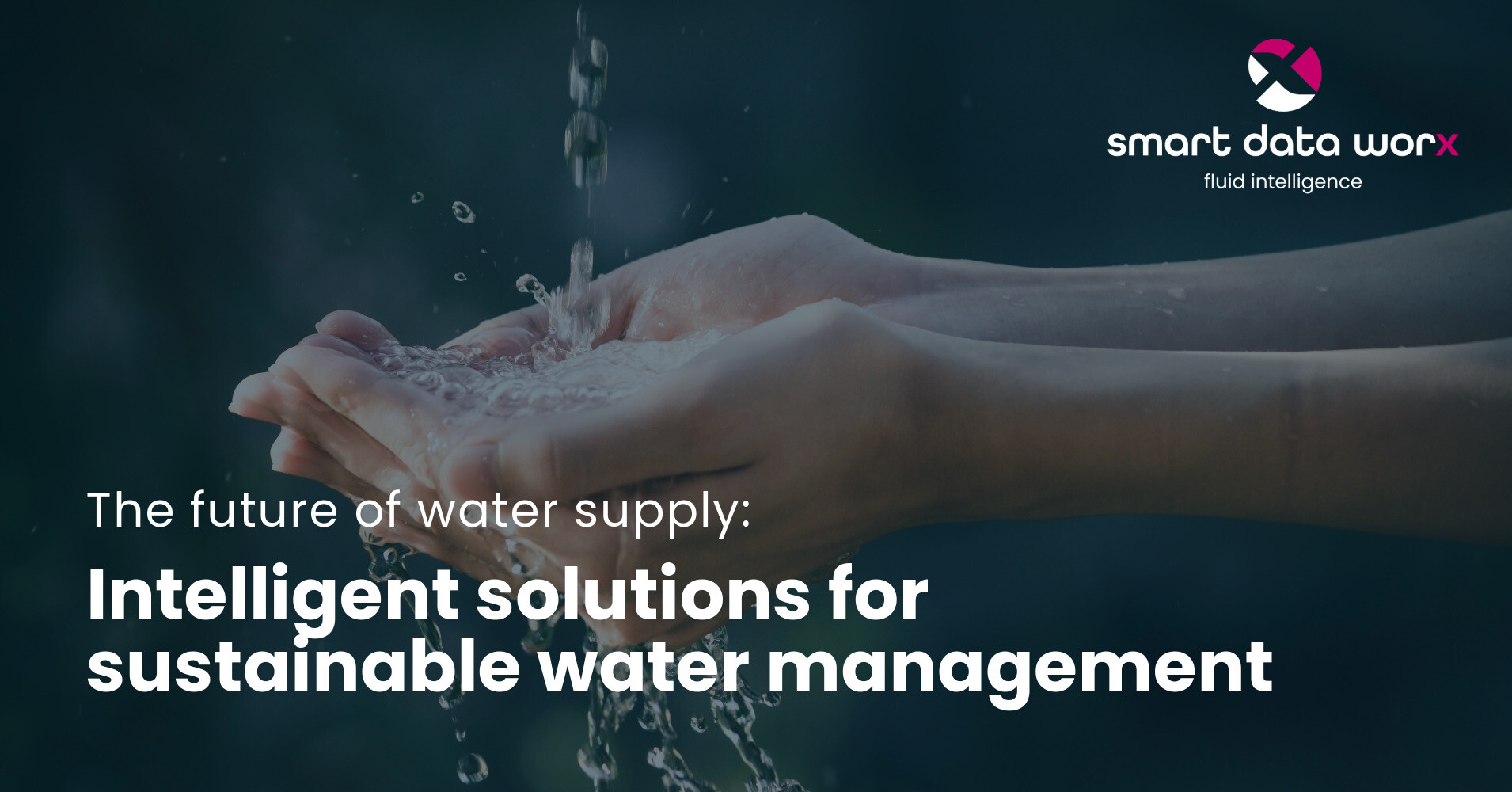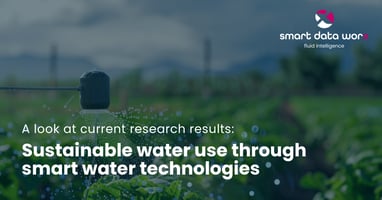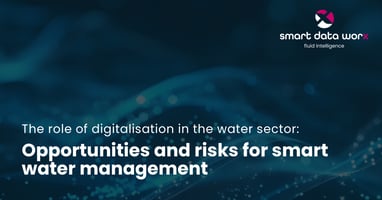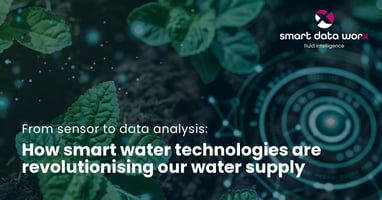The sustainable use of water resources has become a key challenge in view of global environmental...
The future of water supply: Intelligent solutions for water management

Water is the elixir of life on earth, indispensable for humans, animals and plants. Global warming, population growth and urbanisation are increasing the pressure on our water systems. In order to meet these challenges, a change in water management is also necessary. Intelligent solutions and modern technologies enable a more efficient and sustainable use of our water resources and help to future-proof the water supply. This blog post looks at the current status of smart water management, presents innovative technologies and discusses the importance of sustainability in the water sector.
Smart Water Management: The current status
Smart water management refers to the use of advanced technologies to monitor, analyse and control the water supply. This includes the use of sensors, Internet of Things (IoT) devices, artificial intelligence (AI) and data analysis to organise water consumption more efficiently and conserve resources.
Intelligent water meters (smart meters) are a well-known example of smart water management. These devices record water consumption in real time and transmit the data to centralised systems. In Berlin, the ‘Smart Water Management’ project is based precisely on this technology. The data collected is used to analyse consumption patterns, identify inefficient use and develop targeted measures to save water. There are also pilot projects in rural regions that show how intelligent water supply can contribute to solving specific challenges, for example by precisely determining consumption and quality data: Smart water meters provide data on water consumption in real time. This data can help to reduce water consumption by giving users a better understanding of their consumption behaviour. This not only helps to conserve water resources, but also helps consumers to reduce their water costs. In addition, continuous monitoring of the water balance allows illegal water withdrawals to be recognised.
Leakage detection and prevention
Another key element of intelligent water management is leakage detection. Water loss due to leaking pipes is a major problem in many cities around the world. By using sensors and IoT technologies, leaks can be detected and repaired at an early stage. In rural areas, drones are often used to monitor water pipes that are difficult to access. This technology enables large areas to be inspected quickly and efficiently, which is particularly beneficial in regions with limited access to infrastructure.
Technologies for water supply
The technologies used in smart water management are diverse and offer numerous possibilities for improving the water supply. Here are some of the most important applications:
Sensors and IoT
Sensors are used in intelligent water systems in water pipes, wells and water storage tanks. IoT devices network these sensors and enable data to be transmitted in real time. In this way, it is possible to react immediately to changes and potential problems.
Artificial intelligence (AI)
Artificial intelligence is used to analyse the collected data and create predictive models. These models can, for example, predict water consumption, detect leaks or forecast maintenance requirements. Machine learning makes the system increasingly accurate and efficient over time. AI is an important tool for recognising complex relationships and making strategic decisions.
Blockchain
Blockchain technology offers the opportunity to increase transparency and security in the water supply sector. The tamper-proof storage of data and the traceability of transactions ensure the integrity of the information. This is particularly important for the documentation of water quality and the billing of water consumption.
Drones
Drones are particularly useful for monitoring water infrastructure in areas that are difficult to access. They can provide high-resolution images and data for problem detection and remediation. In rural areas where traditional inspection methods are complex and costly, drones offer an efficient alternative
Sustainability in the water sector
Sustainability is a central aspect of modern water management. The efficient utilisation and protection of water resources are crucial for securing supplies for future generations.
Water saving and efficiency
By using intelligent technologies such as smart water meters and leak detection systems, water losses can be minimised and usage optimised. These systems are particularly important as they enable more accurate control of water consumption. Smart water meters provide accurate consumption data in real time, allowing users to better understand and manage their consumption. Leak detection systems, on the other hand, can use advanced sensor technology to detect even the smallest leaks in water supply networks, helping to prevent unnecessary waste. Together, these technologies help to increase the efficiency of water utilisation and ensure the long-term sustainability of the water supply.
Renewable energies
The integration of renewable energies into the water supply is a decisive step towards sustainability. By utilising solar-powered pumps and water treatment systems, energy consumption can be significantly reduced and CO2 emissions lowered. These technologies utilise the power of the sun to pump and purify water, providing an environmentally friendly and cost-effective alternative to traditional fossil fuel energy sources. In addition, such systems can be used in remote or off-grid areas, improving the water supply in these regions and making the local population more independent. In the long term, these measures not only contribute to environmental protection, but can also reduce operating costs for the water supply, as less energy is required for the pumping and treatment processes.
Reuse and recycling
The reuse of wastewater and the utilisation of rainwater are decisive measures for reducing the demand for fresh water. Modern treatment technologies, such as multi-layer filtration systems and advanced biological treatment processes, make it possible to purify wastewater so that it can be reused for irrigation, industrial processes or even as drinking water. Utilising rainwater through collection systems and storage solutions also helps to reduce the need for fresh water and reduce the strain on municipal water supplies. These practices not only conserve natural water resources, but also promote sustainable water management by closing the water cycle and reducing dependence on external water sources.
Case studies and success stories
There are numerous examples of successful smart water management projects around the world. In Singapore, the national water authority PUB has set up a comprehensive smart water grid with sensors, intelligent meters and a centralised control system. This system enables efficient management of water resources and has helped to significantly reduce water losses and therefore costs. By monitoring daily water consumption, everyone can actively contribute to the sustainability of Singapore's water supply in an uncomplicated way.
Amsterdam has introduced an integrated water management system that combines real-time data, AI analyses and smart controls. This system has enabled the city to optimise water consumption and improve the quality of the water supply.
© PUB Singapore National Water Agency
Challenges and future developments
Despite promising approaches and technologies, there are still challenges to overcome. These include the high investment costs for implementing smart systems, ensuring data security and data protection and the need to modernise existing infrastructures.
The further development of the regulatory framework is also crucial in order to promote the implementation and operation of smart water supply systems. Harmonised technical standards and clear guidelines can simplify compatibility and data exchange between the various parties involved.
Conclusion
The future of water supply lies in the intelligent use of modern technologies and innovative approaches. Smart water management provides a wide range of opportunities to make water supply more efficient, sustainable and resilient. By using sensors, IoT, artificial intelligence and blockchain, water resources can be better monitored, controlled and utilised. Examples from cities such as Berlin, Singapore and Amsterdam show that the implementation of smart water supply systems is already successfully possible today and brings significant improvements.
The challenges on the way to an intelligent water supply are manifold, but the potential is enormous. By promoting technological innovations, further developing the regulatory framework and actively involving the population, a sustainable and future-proof water supply can be ensured. Germany has the opportunity to play a leading role in this area and make an important contribution to global sustainable development. If we accept the challenges and utilise the opportunities, we can ensure that water remains a safe and reliable resource for all people in the future.



